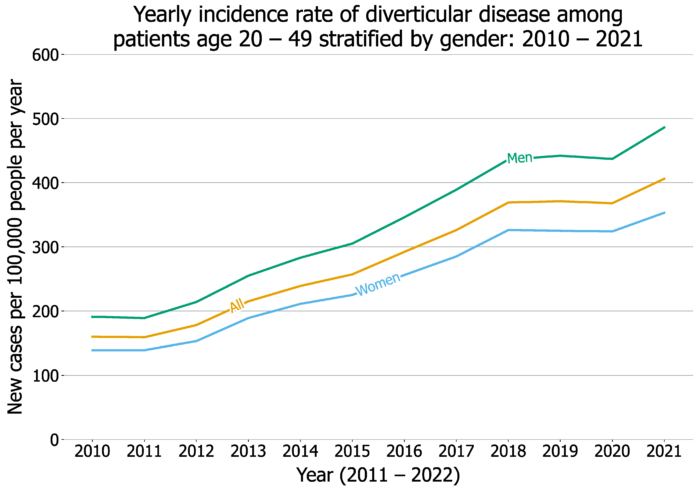
Colorectal Cancer on the Rise: Latest Figures Reveal Alarming Trend
Colorectal cancer, also known as bowel cancer, is on the rise globally. According to the latest figures released by the World Health Organization (WHO), this alarming trend is causing concern among healthcare professionals and researchers worldwide. In this article, we will explore why colorectal cancer rates are increasing, the potential reasons behind this trend, and the measures that can be taken to prevent and detect the disease early on.
Colorectal cancer occurs in the colon or rectum, which are part of the body’s digestive system. It usually starts as a small growth known as a polyp, which can develop into cancer over time. This type of cancer is one of the most prevalent, accounting for approximately 10% of all cancer-related deaths worldwide.
The new figures reveal a worrying increase in colorectal cancer cases, particularly in developed countries. The United States, Australia, Canada, and Western European nations are witnessing a surge in the number of people diagnosed with the disease. However, it is crucial to note that this trend is not restricted to affluent nations; low- and middle-income countries are also witnessing a rise in colorectal cancer cases.
Several factors contribute to the rise in colorectal cancer rates. One of the primary drivers is the aging population. As life expectancy increases globally, so does the risk of developing cancer. Moreover, lifestyle choices play a significant role in this upward trend. Unhealthy diets rich in processed foods, red meat, and low in fiber increase the likelihood of developing colorectal cancer. Sedentary lifestyles, obesity, smoking, and excessive alcohol consumption are also contributing factors.
Inadequate screening and early detection also play a role in the increased prevalence of colorectal cancer. Regular screenings, such as colonoscopies or stool tests, can detect precancerous polyps or early-stage cancer, allowing for timely intervention and treatment. Unfortunately, many individuals neglect these screenings due to various reasons, including lack of awareness, fear, or financial constraints.
Efforts to combat this alarming trend need to focus on prevention and early detection. Promoting a healthy lifestyle is essential, emphasizing the importance of a balanced diet rich in fruits, vegetables, and whole grains while reducing the consumption of processed and red meats. Encouraging regular exercise and weight management can also help reduce the risk of developing colorectal cancer.
Public awareness campaigns are crucial to educate individuals about the importance of routine screenings. Governments and healthcare organizations must invest in comprehensive programs that offer accessible and affordable colorectal cancer screenings to all individuals, irrespective of their socio-economic status. Encouragingly, some countries have started implementing these initiatives, which have proven to be effective in early detection and reducing mortality rates.
In addition to prevention and early detection, advancements in treatment options for colorectal cancer are also vital. Targeted therapies and immunotherapy have shown promise in improving survival rates and reducing the side effects associated with traditional cancer treatments such as chemotherapy and radiation. Researchers and pharmaceutical companies must continue to invest in innovative treatments to provide better outcomes for patients.
Lastly, support services for colorectal cancer patients and their families are equally important. Dealing with a cancer diagnosis can be emotionally and physically challenging, and having access to counseling, support groups, and resources can significantly improve patients’ quality of life.
In conclusion, the latest figures regarding colorectal cancer reveal an alarming trend of increasing rates globally. The aging population, unhealthy lifestyles, and inadequate screening contribute to this rise. Preventive measures such as promoting healthy lifestyles and regular screenings, along with advancements in treatment options, are crucial in addressing this issue. Additionally, comprehensive support services for patients and their families are essential. By taking collective action, we can strive to reduce the incidence and impact of colorectal cancer, preserving the health and well-being of individuals worldwide.


















